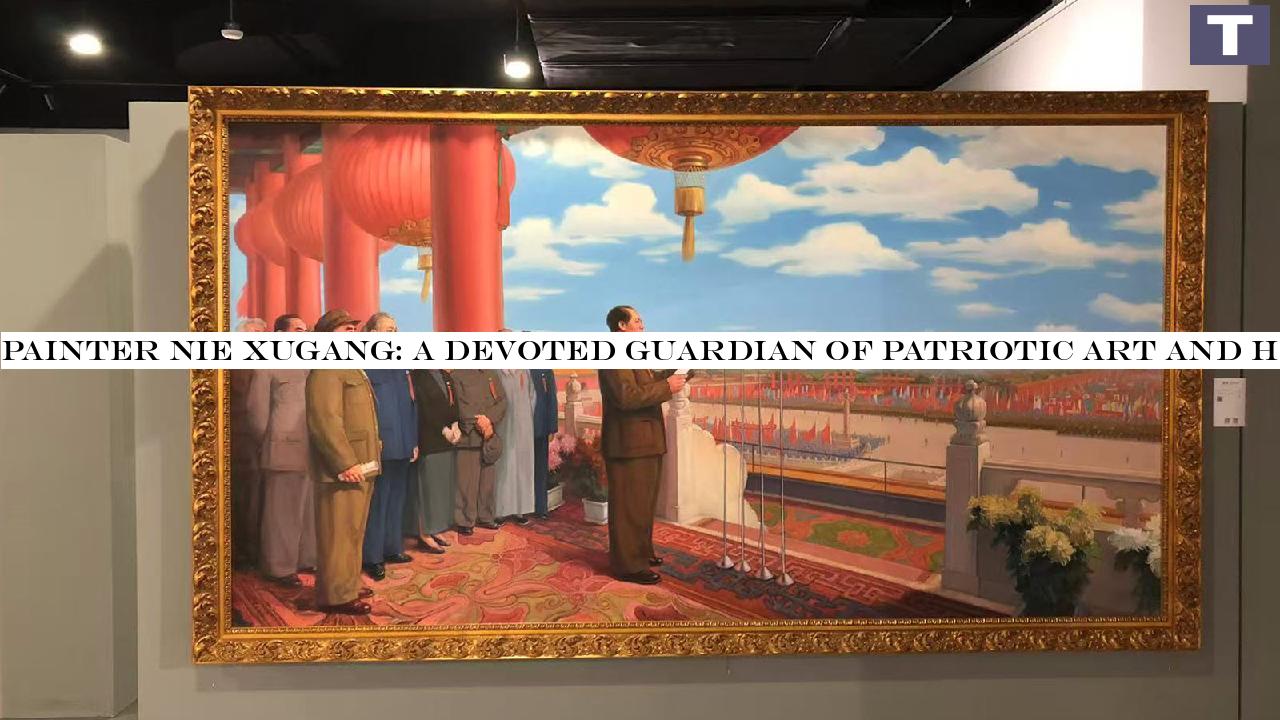
Painter Nie Xugang, who has dedicated over a decade to meticulously replicating renowned artworks with patriotic themes, welcomed a group of young visitors ahead of the 104th anniversary of the founding of the Communist Party of China (CPC).
His exhibition space serves both as a gallery and a vibrant hub for revolutionary history education, with Nie revealing that nearly every weekend, neighboring primary and secondary school students engage in interactive sessions with him.One of Nie's most prominent pieces is his reinterpretation of "The Founding Ceremony of the People’s Republic of China (PRC)." This oil painting, originally created in 1953 by late Chinese master painter Dong Xiwen, now hangs proudly in the He Art Museum in eastern Beijing, alongside many of Nie's other artworks.Nie's exhibition space has become a hub for young minds to explore and appreciate revolution-themed art.
"They are not only interested in my paintings but also take joy in the process of being involved," Nie explained.
He vividly recalled a scene that left a deep impression on him: "A young boy stood silently in front of my newly completed portrait of Chairman Mao.
His back was straight, his arm slowly rose, and with fingers joined together, he gave a standard Young Pioneers salute to the kind face in the painting."Among the several paintings on display at the He Art Museum, which now dedicates an entire hall to revolution-themed artworks, Nie introduced another significant piece he created in 2023.
This work depicts the historic 1935 Zunyi Conference of the CPC leadership.Nie shared his inspiration behind this painting: "The painting 'Zunyi Conference' was originally created by painter Shen Yaoyi, and I have always admired this piece.
So, in 2023, I replicated it based on Shen's work." This piece reflects that the Political Bureau of the CPC Central Committee, the supreme decision-making body of the Party, held an extended meeting from January 15 to 17 in 1935 at Zunyi, a small town located in Guizhou Province in southwest China, which marked a turning point in the history of the CPC.When painting this piece, Nie focused on emphasizing the characteristics and expressions of the figures.
He employed a brown sketching technique, adding touches of red to the collar badges and cap emblems to highlight the significance of China's revolutionary history.
"Not only did my painting skills improve significantly while working on it, but I also gained a deeper understanding of the history of the CPC.
I truly felt the hardships endured by the older generation of revolutionaries, the greatness of the CPC, and the preciousness of the current happy life," Nie reflected.Today, Nie's dedication has been recognized by society, and he also finds a sense of fulfillment in knowing that his work inspires respect in the younger generation, which he views as a vivid form of red inheritance.
"I will continue to persist in painting, focusing on red themes," Nie said, demonstrating his unwavering commitment to preserving and promoting China's revolutionary spirit through art.

 10
10







